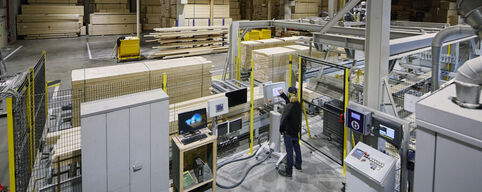

Despite its achievements, the Polish furniture industry is facing challenges related to the increase in debt. At the end of January, the debt of furniture manufacturers amounted to PLN 336 million, which means an increase of 23% compared to the previous year. This causes concern among both producers and economists. Poland, the European Union's leading furniture exporter with a 19% share, faces the challenge of maintaining its market position.
The forestry and wood industry is one of the key sectors of the Polish economy. It employs over 136,000 people and makes a significant contribution to the country's GDP. However, it faces problems that could affect its future. One of the main challenges is to safeguard forest resources, which are the foundation of the entire wood industry. If the forest resources are not managed responsibly, they could be depleted, which would limit the wood sector's production capacity and reduce Poland's competitiveness on the international market.
Another problem is the loss of markets for wood exports. Global climate change, trade policies and increasing environmental requirements affect the availability of and demand for wood from Poland. The wood industry, while looking for new markets, must also adapt to discernible pro-environmental trends, which entails the necessity to invest in technologies and sustainable forestry practices.
Despite the difficulties, according to the BIG InfoMonitor and BIK Debtors Register, the unpaid liabilities of the wood industry have been reduced by 20% over the past two years, reaching PLN 91.6 million at the end of January. This includes more than 1,000 companies, which shows the progress in financial management in the wood industry.
The dynamically changing landscape of the wood industry forces the introduction of changes aimed at better protection of forest resources in Poland. In response to these complex challenges, the sector is adopting a new approach to forest management that takes into account the ecological aspect and sustainable resource management.
New legal regulations and investments in modern forestry technologies are intended not only to protect the environment but also to increase production efficiency. Cooperation between the private sector and the state is being developed to find solutions that will allow for sustainable development and strengthen Poland's position as a leader in furniture production and export.
These changes are crucial for the future of the Polish wood industry. If we manage to effectively secure resources, we can expect an increase in investments and an increase in the competitiveness of Polish wood and furniture on foreign markets. Poland, with its enormous raw material and production potential, has the opportunity for further expansion in the European Union and in new non-European markets, provided that it meets current challenges and maintains a balance between economic and ecological needs.



